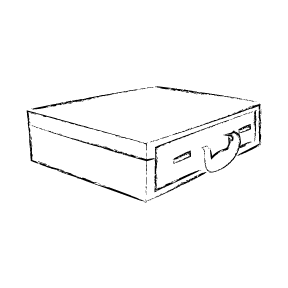Yelling and rudeness in opposing illegal discrimination
It is understandable that when an employee suffers discrimination at work, things may get a bit heated. As the EEOC has noted in Odilia (discussed below) employees accusing their supervisors of harassment and discrimination inherently involves confrontation, so it would have been difficult for Complainant to avoid a
That shouldn't by itself strip employees of their rights. When an employee gets a little loud about discrimination they are experiencing, the yelling may be a bad idea - and it will certainly hurt their case - but they should still have some protection against retaliation unless their conduct is objectively too extreme.confrontational and disrespectful
tone.
As Professor Carle has written, to expect perfect decorum when reporting a traumatic event like discrimination is not only logically untenable but also undermines the objectives of Title VII.
It creates perverse incentives, resulting in employers having higher chances of prevailing in discrimination suits when their conduct is so infuriating that it causes employees to lose their temper.
Angry Employees: Revisiting Insubordination in Title VII Cases,
10 Harvard Law & Policy Review 185 (2016).
In a blog post back in 2020 we talked about yelling and other forms of rudeness that can come up when standing up for worker's rights. That law has changed once again, and this time it has gotten better.
In Lion Elastomers LLC II, 372 NLRB No. 83 (2023), the NLRB reversed the misguided General Motors decision we previously discussed, and reinstated the proper test. Under this test four factors are considered:
- the place of the discussion;
- the subject matter of the discussion;
- the nature of the employee's outburst; and
- whether the outburst was, in any way, provoked by an employer's unlawful conduct.
So, unless an employee's protected complaint was beyond the pale and unprovoked, it will be illegal retalition to fire the employee for the outburst.
In this way, the Fifth Circuit and NLRB have applied a balancing test which considers all the circumstances. NLRB v. Sw. Bell Tel. Co., 694 F.2d 974, 978 (5th Cir. 1982) (protecting a union shop steward who engaged in an intemperate spontaneous outburst since one outburst had taken place in the context of discussion of terms and conditions of employment, activity protected under Section 7, and that the other had been provoked by the earlier disciplinary action)
The EEOC has also recognized this in its doctrine of per se retaliation protecting federal employees. For example, in Odilia M. v. VA, an employee engaged in confrontational and disrespectful
communications accusing the supervisor of discrimination, and was disciplined for [d]isrespectful conduct, use of insulting, abusive, or obscene language to or about other personnel.
EEOC Appeal No. 0120150311 (Nov. 3, 2016). EEOC held that this was unlawful retaliation per se. It reasoned that a supervisor's discipline that, on [its] face, discourage[s] an employee from participating in the EEO process violate[s] the letter and spirit of the EEOC regulations and evidence[s] a per se violation of the law.
This is so even if the employee complaining had in fact been rude about it.
To be clear, I'm not suggesting that anyone yell or get rude when reporting discrimination. Make no mistake: it is always a mistake to yell or get rude. It will definitely make your case worse or even ruin it if you go off the handle about it at work. Take a deep breath. Be cool. Make your discrimination accusation when you are at your most centered and calm. You might even want to record yourself doing it to protect yourself against false accusations of rudeness.
But if that ship has sailed and things got a little heated, it may not be the end of the world. You still should have some protection against retaliation.



Pursuant to MRPC 7.4(a)(2) FREE BACKGROUND INFORMATION AVAILABLE UPON REQUEST
This site is for general information only, and creates no attorney-client relationship. Sending inquiries to the firm does not create an attorney-client relationship. By calling or emailing the firm, you are consenting to receive return calls, emails, mailings and text messages from the firm.
To get legal advice about an employment law, labor law, federal employee law, whistleblower protection, labor unions, worker cooperatives, immigration, discrimination, harassment, wrongful termination, severance, or any related question, you must first have a conflicts check by the firm. We represent exclusively workers, worker cooperatives and unions, but we still must check for potential conflicts of interest, for example, between a supervisor and employee.
First provide the firm with your name, and the name of the person you are making claims against. This allows the firm to check for such conflicts of interest. Until you receive confirmation that there is NO CONFLICT, none of the information you provide will be considered confidential. Do NOT provide any confidential information before we have asked you to do so.
Once we have confirmed there is no conflict, you may discuss your matter with staff in a little more detail, and, if requested, make an appointment. If at your appointment the firm accepts you as a client in writing, then the attorney will be able to provide you with employment law advice.
.
.
.